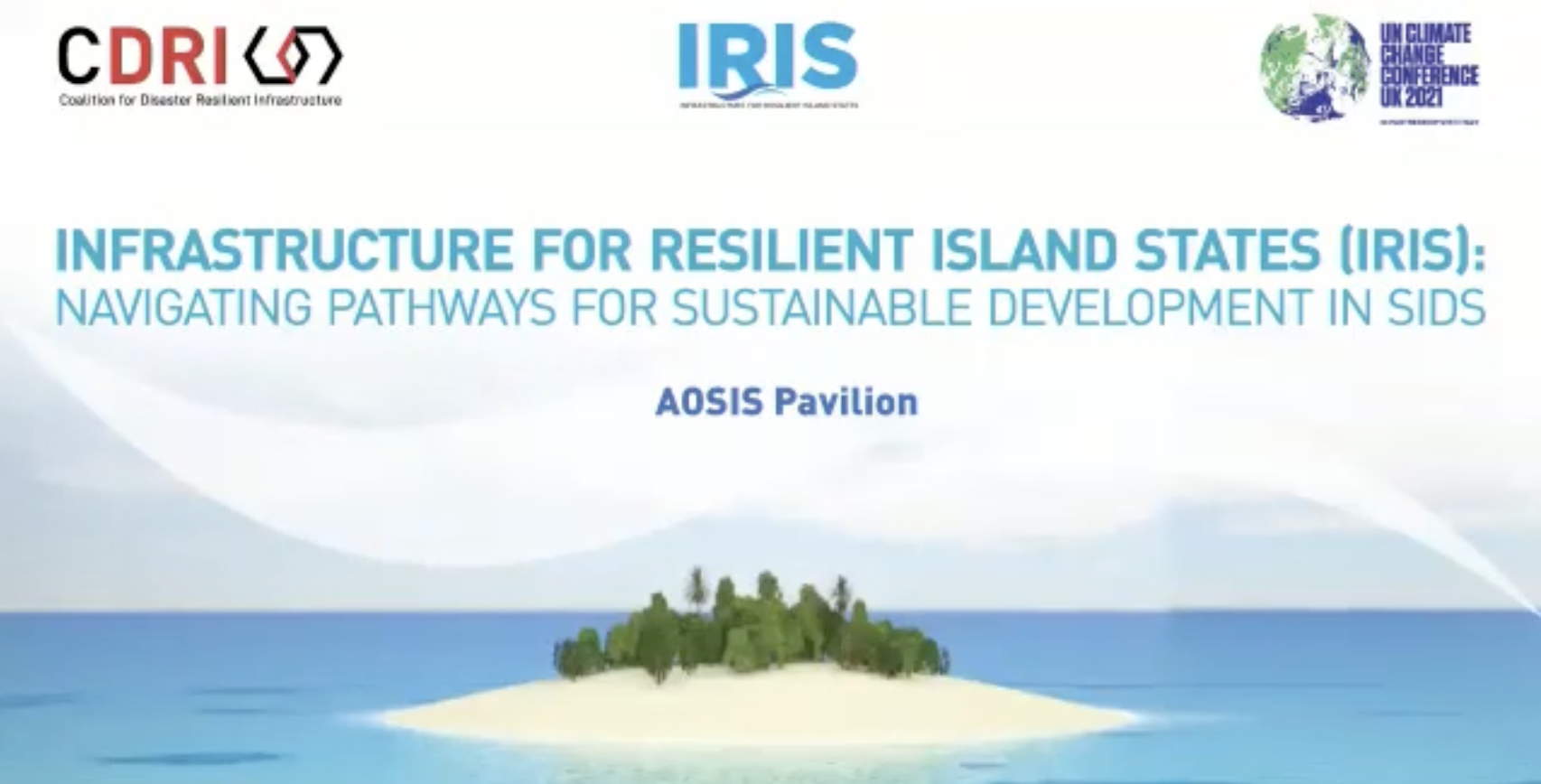IRIS: Navigating pathways for sustainable development in SIDS

Against this background, the Coalition for Disaster Resilient Infrastructure (CDRI) has proposed a dedicated initiative Infrastructure for Resilient Island States (IRIS), which will work to achieve sustainable development through a systematic approach to promote resilient, sustainable, and inclusive infrastructure in SIDS. IRIS is co-curated by SIDS representatives and CDRI partners and is being launched at COP26 during the World Leaders Summit in presence of Heads of Governments from India, UK, Australia, Fiji, Mauritius and Jamaica. IRIS is envisaged to provide technical support on multifaceted issues posed by infrastructure systems and promote disaster and climate resilience of infrastructure assets in SIDS. IRIS will work with SIDS to identify opportunities for partnerships and technical collaborations to strengthen infrastructure systems for resilient development in SIDS. IRIS OFFICIAL will aim to directly contribute to the SAMOA Pathway (SIDS Accelerated Modalities of Action) by delivering on the following three key outcomes:
- Improve resilience of SIDS infrastructure to climate change and disaster risk.
- Strengthen knowledge and partnerships for integrating resilience in SIDS infrastructure.
- Promote gender equality and disability inclusion through resilient SIDS infrastructure.
This session will attempt to bring forward the existing challenges and significant opportunities for achieving the intended outcomes outlined for IRIS. Through this session, key SIDS representatives will discuss the risks, infrastructure priorities and the delivery mechanisms that can help integrate disaster and climate resilience for infrastructure development and in achieving the outcomes of IRIS in complementarity with the efforts SIDS are already taking to achieve their development goals.
| Moderator | Kamal Kishore, Member Secretary, National Disaster Management Authority and India and Co-Chair Executive Committee, Coalition for Disaster Resilient Infrastructure (CDRI) |
| Opening Address | Selwin Charles Hart, Assistant Secretary General, Climate Action Team |
| Panelist 1 | Lu'isa Tu'i'afitu-Malolo, Director for Climate Change, Ministry of Meteorology, Energy, Information, Disaster Management, Environment, Climate Change and Communication (MEIDECC), Tonga |
| Panelist 2 | H E Ambassador Diann Black-Layne, Director, Department of Environment and Climate Ambassador, Antigua and Barbuda |
| Panelist 3 | Hon. Kavyadass Romano, Minister of Environment, Solid Waste Management and Climate Change, Mauritius |
| Panelist 4 | Karlos Lee Moresi, Programme Adviser – Resilient Development Finance, Pacific Island Forum (PIF) |